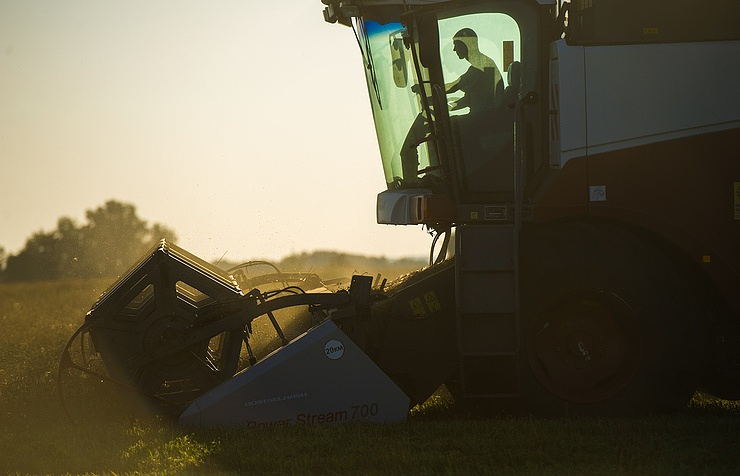Russia’s ambassador to the World Trade Organization (WTO) will meet his Turkish counterpart in Geneva to discuss the situation with suspension of Russian grain purchases by Turkish flour producers, department director of the Russian Ministry of Economic Development Maxim Medvedkov told TASS on Monday.
“Our ambassador to WTO will meet his Turkish counterpart in Geneva shortly to discuss the situation. Regimes of temporary import for processing and subsequent export are not usually reserved for specific countries; access of goods for relevant operations is provided on a non-discriminating basis as stipulated in WTO agreements,” Medvedkov said.
Earlier member of the Management Board of the Istanbul Association of Exporters Zekeriya Mete confirmed to TASS that Russian grain imports had been restricted. He said there was a ministerial instruction to restrict imports of grain from Russia but all vessels with Russian grain that already arrived at Turkish ports would be accepted. The new regime came into force from March 15.
Russian vessels with agricultural products cannot receive a shipment authorization from Turkey from March 15, Vice President of the Russian Grain Union Alexander Korbut told TASS on Monday.
“Bills of lading [documents certifying ownership title to shipped goods – TASS] issued before [March] 15 are performed and the ones issued after that day are not. Therefore financial losses cannot be estimated so far but both parties sustain them – this ban runs counter to the common sense,” Korbut said.
Turkey has not imposed restrictions on imports of Russian agricultural products and grain but removed Russia from the list of countries allowed to import products free of duties, a source in Russia’s trade promotion office in Ankara told TASS earlier on Monday. Russian exporters and their Turkish customers imported grain at a zero duty rate earlier but only for processing and subsequent export. The duty of 130% applied nevertheless to product sales on the domestic market.
The ban is of political nature and the issue can be expected to be settled through negotiations, Korbut said.
If the ban on duty-free import of Russian agricultural products remains, Russian exporters will not have problems with searching for new markets, the vice president said. “We are already involved in a proactive search and no problems will arise in this regard. Nevertheless, we should hope Turkey will reconsider its decisions,” he added.
